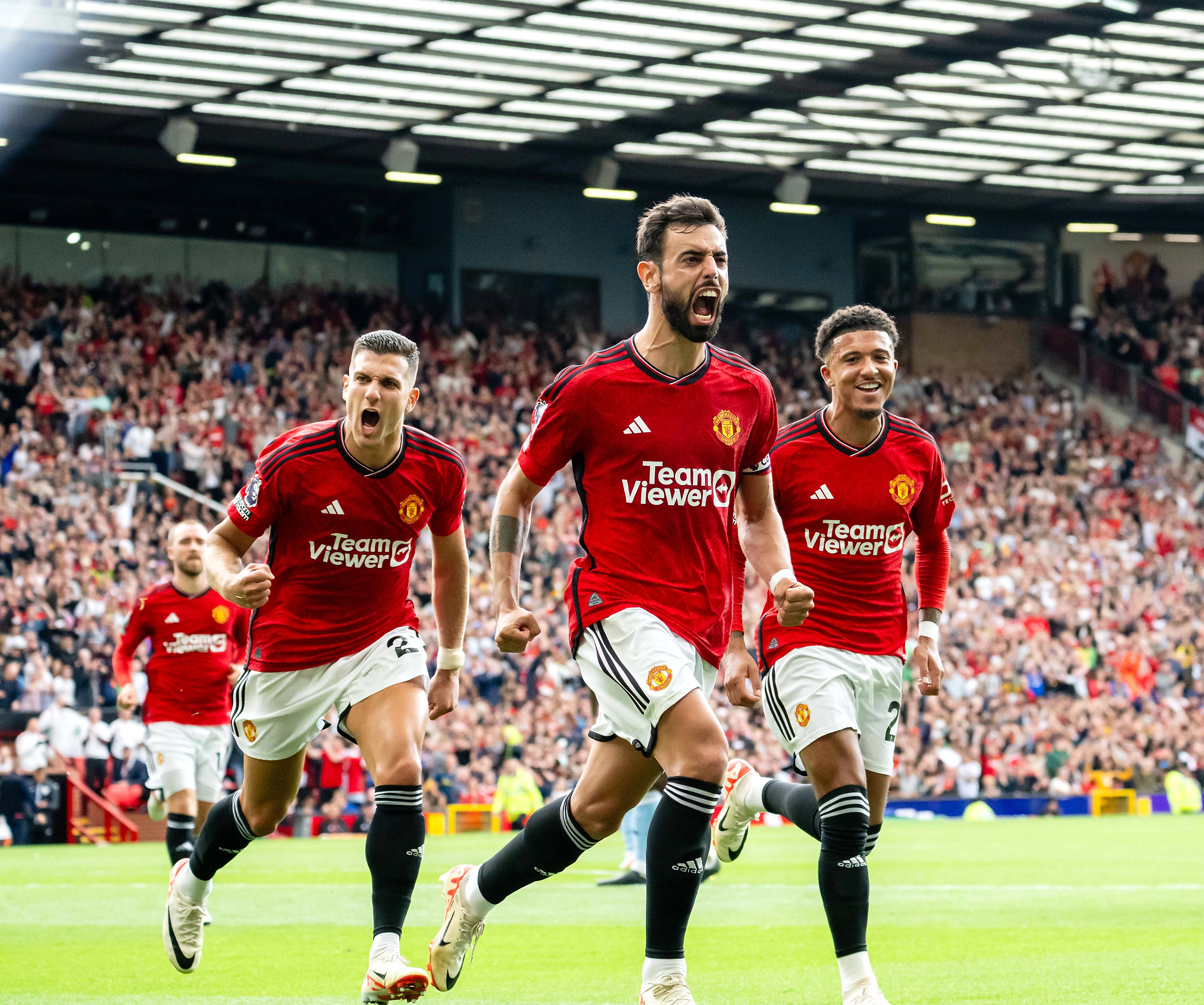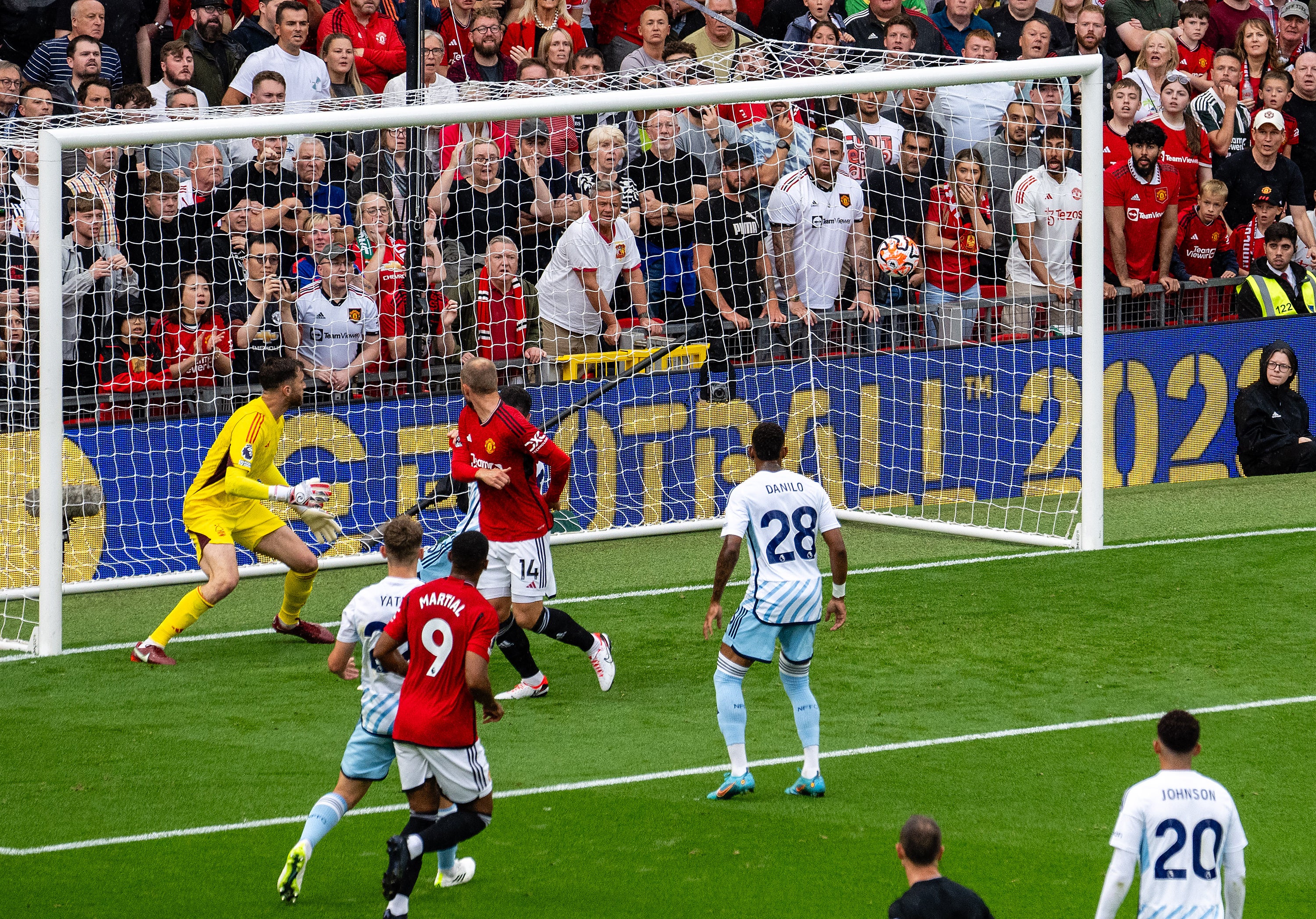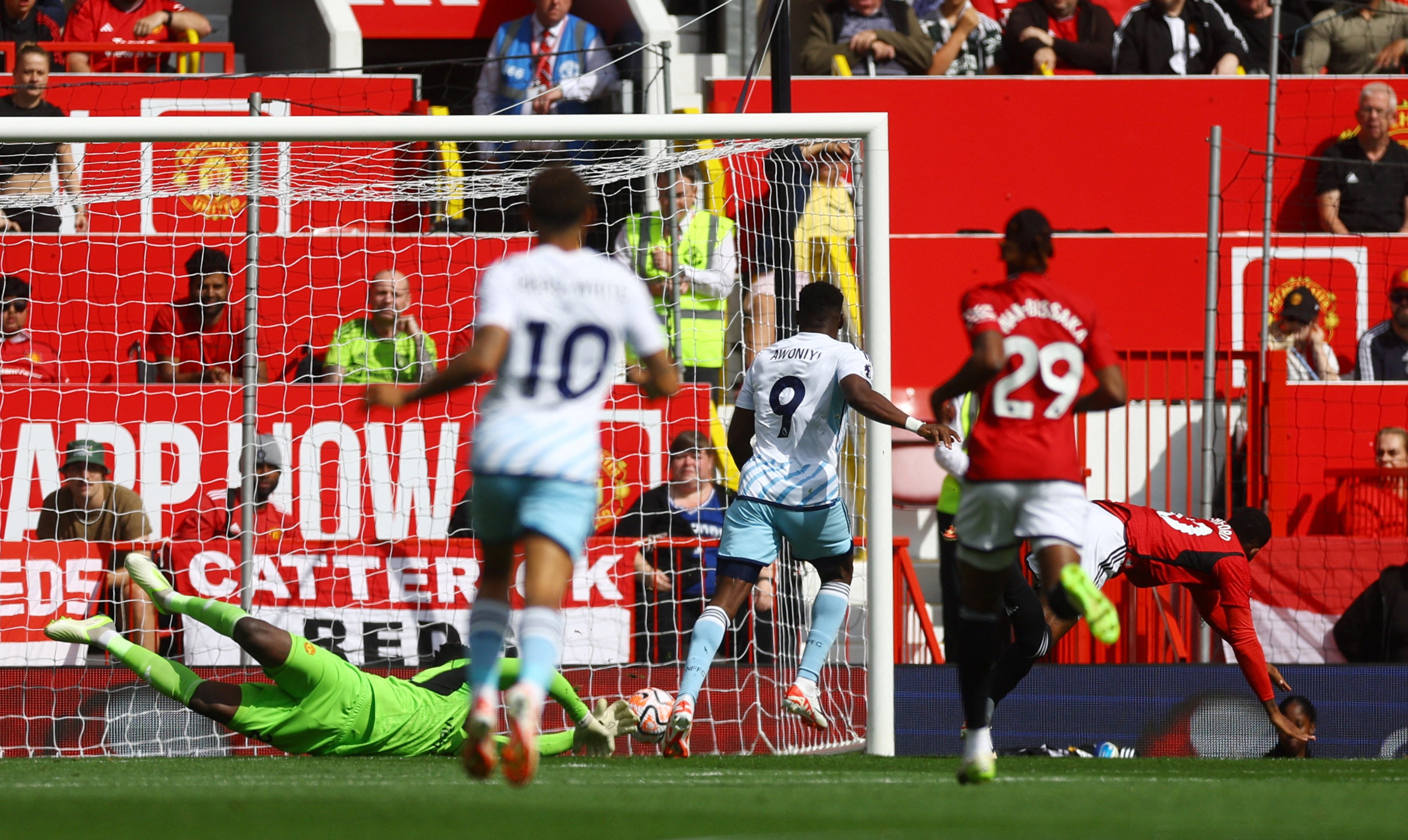
If the Manchester United captaincy was once reserved for the talismanic, in recent seasons the mantle has fallen to the declining, injured, and replacements. There were reasons why Erik ten Hag moved Bruno Fernandes from vice-captain to captain with the armband, ending his regency by crowning him, and they went beyond demoting Harry Maguire.
When United needed leadership, when a difficult week threatened to turn disastrous, when a slow start to the season threatened to become stunning, Fernandes provided an example of his motivation. Within four minutes, United had been two goals behind to Nottingham Forest. Fernandes was crucial in each of the four decisive situations that led to victory.
His shooting resulted in United’s opening goal, his header set up Casemiro for the second, and his penalty resulted in the third. In the meanwhile, his run resulted in Joe Worrall’s red card; one captain resorted to dragging the other down and rugby tackling the Portuguese, believing that this was Forest’s best hope of stopping him. There was a dynamism to United’s driving force, and while his leadership was called into question after the loss to Tottenham, and his inclination toward petulance was highlighted, he provided the appropriate kind of role model for this club, offering charm and the ability to be a catalyst. Bryan Robson, United’s Captain Marvel for much of a decade, stood by; the description has rarely fit Maguire or the aging quintet of Ashley Young, Antonio Valencia, Michael Carrick, and Wayne Rooney, much as each had done previously at Old Trafford.
There was an old-fashioned element to it, with individual talent propelling United forward, but as captivating as the game was, Fernandes’ contribution should not be used to mask his team’s flaws. If Manchester’s comeback tradition is spectacular, the reasons they needed the newest addition to a lengthy list were heinous. On a day when United was honoring the unsung heroes of their past by handing medals to the families of title-winning players who had not received them, they created history in the wrong way.
They’d never been two goals down in a Premier League game at Old Trafford. Forest, who had only one away win in the Premier League this century, eventually suffered an 11th consecutive defeat in their matches with United, but only after Ten Hag’s troubles intensified. Raphael Varane did not return for the second half after missing the first two games due to injuries to Mason Mount and Luke Shaw.
Taiwo Awoniyi puts Nottingham Forest in front at Old Trafford
(Action Images via Reuters)
Even with the World Cup winner on the field, United got off to a shaky start. Ten Hag found much of the final 55 minutes against Tottenham intolerable, and the first four minutes against Forest were no better. It wasn’t simply the quickness of Forest’s goals, but also their style. United appeared to be extremely vulnerable to the quickness of Taiwo Awoniyi on the counter-attack. They managed to concede to both teams’ set-pieces: first their own corner, then a Forest free kick.
They were both unfortunate, although in different ways. The 80-second opener was reminiscent of Demba Ba’s iconic goal for Istanbul Basaksehir against Manchester United, when the striker faced no defenders on a single run. When United lost control after a corner, 70 yards from their goal, Marcus Rashford was the last outfielder back. It didn’t help Andre Onana’s cause when, after Awoniyi sprinted 60 yards, the goalie dived to the ground before the striker shot, allowing him to roll the ball past him.
The claim that Willy Boly headed in Morgan Gibbs-White’s free kick was deceptive; rather, it struck the defender, who had not jumped, and rebounded beyond Onana. The fact that Lisandro Martinez had missed his own header added to the comical atmosphere.
However, United has a distinct advantage in the form of elite players. This was a triumph of talent rather than strategy. Fernandes had two teammates in Rashford and Casemiro, and while Anthony Martial’s 300th United appearance was disappointing, his presence as the striker allowed the Manchester native to revert to the left wing. After the unconvincing goalkeeper Matt Turner parried Fernandes’ shot, Rashford sashayed clear to cross for Christian Eriksen to finish neatly.

Christian Eriksen grabs a goal back for Manchester United
(Getty Images)
After a well-worked free-kick resulted in Rashford chipping a long cross and Fernandes hitting it back across goal, Casemiro, who had already missed one from four yards, took another. Casemiro delivered a defence-splitting ball from deep for the Portuguese to charge on to, but Worrall’s intervention ended his afternoon. When Danilo fouled Rashford a few minutes later, Fernandes converted the penalty.
The comeback is complete, but although Sir Alex Ferguson used to delight at how his United players used to make life difficult for themselves, Ten Hag has reason to be disappointed about the early misery. Ferguson began by presenting the medals to the relatives of individuals who had played in too few games to qualify at the time. Among those honored was actor Ian McShane, whose father, Harry, was a member of Sir Matt Busby’s 1952 team. Fernandes eventually gained love and delight, while United suggested they have lots of deadwood.

